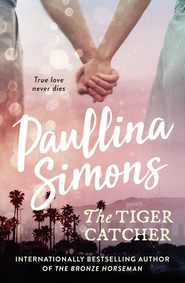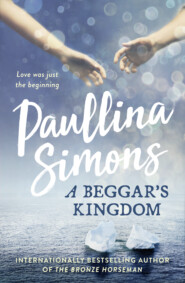По всем вопросам обращайтесь на: info@litportal.ru
(©) 2003-2024.
✖
Tatiana and Alexander
Настройки чтения
Размер шрифта
Высота строк
Поля
“Alexander, darling, Merry Christmas Eve.” Having changed the subject, Jane smiled wistfully. “Dad doesn’t like us to remember the meaningless rituals—”
“It’s not that I don’t like to,” interjected Harold. “I just want them placed in their proper perspective—past and gone and unnecessary.”
“And I agree with him completely,” Jane calmly continued, “but it does get you in the chest once in a while, doesn’t it?”
“Particularly today,” said Alexander.
“Yes. Well, that’s all right. We had a nice dinner. You’ll get a present on New Year’s like all the other Soviet boys.” She paused. “Not from Father Christmas, from us.” Another pause. “You don’t believe in Santa Claus anymore, do you, son?”
“No, Mom,” Alexander said slowly, not looking at his mother.
“Since when?”
“Since just now,” he replied, standing up and gathering the plates off the table.
Jane Barrington found work lending books at a university library but after a few months was transferred to the reference section, then to the maps, then to serving lunch in the university cafeteria. Every night, after cleaning the toilets, she cooked a Russian dinner for her family, once in a while lamenting the lack of mozzarella cheese, the absence of olive oil to make good spaghetti sauce, or of fresh basil, but Harold and Alexander didn’t care. They ate the cabbage and the sausage and the potatoes and the mushrooms, and black bread rubbed with salt, and Harold requested that Jane learn how to make a thick beef borscht in the tradition of good Russian women.
Alexander was asleep when his mother’s shouting woke him. He reluctantly got out of his bed and came into the hall. His mother in her white nightgown was yelling obscenities at one of Marta’s sons, who was skulking down the hall not turning around. In her hands, Jane held a pot.
“What’s going on?” said Alexander. Harold had not gotten up.
“There I was, going to the bathroom, and I thought, let me go get a drink of water. It’s the middle of the night, mind you, what could be the problem with that? And what did I find in the kitchen but that hound, that filthy animal, with his disgusting paw in my borscht, digging out the meat and eating it! My meat! My borscht! Right out of the pot! Filth!” she called down the hall. “Filth and slime! No respect for people’s property!”
Alexander stood and listened to his mother, who kept on for a few more minutes and then, with angry relish, threw the entire pot of recently cooked soup into the sink. “To think that I would eat anything after that animal’s hands were in it,” she said.
Alexander went back to bed.
The next morning Jane was still talking about it. And the next afternoon, when Alexander came home from school. And the next dinner—which was not delicious borscht but something meatless and stewed that he did not like. Alexander realized he preferred meat to no meat. Meat filled him up like few other things did. His growing body confounded him, but he needed to feed it. Chicken, beef, pork. Fish if there was some. He didn’t care much for an all vegetable dinner.
Harold said to Jane, “Calm down. You’re really getting yourself worked up.”
“How could I not? Let me ask you, do you think that scum washed his hands after he pawed the whore from the train station that was with fifty other filthy scum just like him?”
“You threw the soup out. Why such a fuss?” said Harold.
Alexander tried to keep a serious face. He and his father exchanged a look. When his father didn’t speak, Alexander cleared his throat and said, “Mom, um, may I point out that this is not very socialist of you. Marta’s son has every right to your soup. Just as you have every right to his whore. Not that you would want her, of course. But you would be entitled to her. As you are to his butter. Would you like some of his butter? I’ll go and get some for you.”
Harold and Jane stared at Alexander cheerlessly.
“Alexander, have you lost your mind? Why would I want anything that belongs to that man?”
“That’s my point, Mom. Nothing belongs to him. It’s yours. And nothing belongs to you, either. It’s his. He had every right to rummage in your borscht. That’s what you’ve been teaching me. That’s what the Moscow school teaches me. We are all better for it. That’s why we live like this. To prosper in each other’s prosperity. To rejoice and reap benefit from each other’s accomplishment. Personally, I don’t know why you made so little borscht. Do you know that Nastia down the hall hasn’t had meat in her borscht since last year?” Brightly Alexander looked at his parents.
His mother said, “What in the name of the Lord has gotten into you?”
Alexander finished his cabbagy, oniony dinner and said to his father, “Hey, when’s the next Party meeting? I can’t wait to go.”
“You know what? I think no more meetings for you, son,” said Jane.
“Just the opposite,” said Harold, ruffling Alexander’s hair. “I think he needs more of them.”
Alexander smiled.
They had arrived in Moscow in the winter, and after three months they realized that to get the goods they needed, the white or rye flour, or electric bulbs, they had to go to the private sellers, to the speculators who loitered around railroad stations selling fruit and ham out of their furlined coat pockets. There were few of them and their prices were exorbitant. Harold objected to it all, eating the small rationed black bread portions, and borscht without meat, and potatoes without butter but with plenty of linseed oil—previously thought to be good only for making paint and linoleum and for oiling wood. “We have no money to give away to private traders,” he would say. “We can live one winter without fruit. Next winter there will be fruit. Besides, we don’t have any extra money. Where is this money to buy from speculators coming from?” Jane would not reply, Alexander would shrug because he did not know, but in the dark after Harold was asleep, Jane would creep into his room and whisper to him to go the next day and buy himself oranges so the scurvy wouldn’t get him, and ham so dystrophy wouldn’t get him, or some rare and dubiously fresh milk. “Hear me, Alexander? I’m putting American dollars in your school bag, in the inner pocket, all right?”
“All right, Mom. Where is this American money coming from?”
“Never mind that, son. I brought a little extra, just in case.” She would creep to him and in the dark her mouth would find his forehead. “Things are not expected to be good overnight. Do you know what’s going on in our America? The Depression. Poverty, unemployment, things are difficult all over; these are difficult times. But we are living according to our principles. We are building a new state not on exploitation but on camaraderie and mutual benefit.”
“With a few extra American dollars?” Alexander would whisper.
“With a few extra American dollars,” Jane would agree, gathering his head into her arms. “Don’t tell your father, though. Your father would get very upset. He’d feel as if I’d betrayed him. So don’t tell him.”
“I won’t.”
The following winter, Alexander was twelve and there was still no fresh fruit in Moscow. It was still bitterly cold, and the only difference between the winter of 1931 and the winter of 1930 was that the speculators near the railroads had vanished. They had all been given ten years in Siberia for counter-revolutionary anti-proletarian activity.
CHAPTER FOUR (#ulink_1e44a7f7-9753-5dad-8cbf-4365accd6af2)
Living on Ellis Island, 1943
TATIANA TRIED TO READ to improve her English while she got better. In the small but well-stocked Ellis library, she found many books in English donated by nurses, by doctors, by other benefactors. The library even had some books in Russian: Mayakovsky, Gorky, Tolstoy. Tatiana read in her room, but reading in English could not keep her attention and when her attention wandered, images of rivers and ice and blood mixed with images of bombing, planes, mortars, and ice holes, and knitting, and sewing, and motionless mothers on sofas with their body bags in their hands and famished frozen sisters on piles of dead bodies and brothers who vanished on exploding trains and fathers who burned down to ashes and grandfathers with infected lungs and grandmothers dying of grief. White camouflage, pools of blood, wet matted black hair, an officer’s cap strewn to the side, lying on the ice, images all so visceral she would have to stagger down the hall and throw up in the shared bathroom and afterwards force herself into learning better and better English that sufficiently commanded her attention so that her mind did not wander and go where the heart could not help but wander, meander into the emptiness in the middle of her chest, a black void that felt so much like fear that when she closed her eyes, her whole body choked on it.
She would lift a sleeping Anthony out of his bassinet and lay him on her chest for comfort, for closeness. But no matter how good Anthony smelled, and how silky his black hair felt against her lips, she could not keep her mind from wandering. If anything …
But she liked to smell him. She liked to undress him if it was sufficiently warm, and feel his chubby pink soft body. She liked to smell his hair and his neck and his milky baby breath. She liked to turn him over and touch his back and his legs and his long feet, and smell the back of his neck. Contentedly he slept and did not wake up, not even with all the prodding and caressing.
“Does this child ever wake up?” asked Dr. Edward Ludlow on one of his rounds.
In slow English Tatiana replied, “Think him as lion. He sleeps twenty hours in day and wakes up in night to hunt.”
Edward smiled. “You must be getting better. You’re making a joke.”
She smiled wanly. Dr. Ludlow was a thin, graceful man of fluid motion. He did not raise his voice, he did not jerk his hands. He was soothing in his eyes, in his speech, in his movements. He had a good bedside manner, a must for a fine doctor. He was in his mid-thirties, Tatiana guessed, and carried himself so upright that she suspected he might have been a military man once. She felt that she could trust him. He had serious eyes.
Dr. Ludlow had delivered Anthony when she had arrived in the Port of New York and gone into labor, a month early. He now came every day to check on her, even though Brenda said that normally he worked at Ellis only a couple of days a week.
Glancing at his watch, Edward said, “It’s almost lunchtime. Why don’t we take a walk if you’re up to it, and eat in the cafeteria? Put on your robe and we’ll go.”
“No, no.” She didn’t like to leave her room. “What about TB?”
He waved her off. “Put on your face mask and walk down the hall.”
Reluctantly she went. They had lunch at one of the narrow rectangular tables lining the large open room with high windows.
“It’s not great,” Edward said, looking at his meal. “I get a little beef. Here, have some of mine.” He cut half of his chipped beef with gravy and put it on her plate.
“Thank you, but look at all food I have,” said Tatiana. “I have white bread. I have margarine. I have potatoes and rice and corn. There is so much food.”











